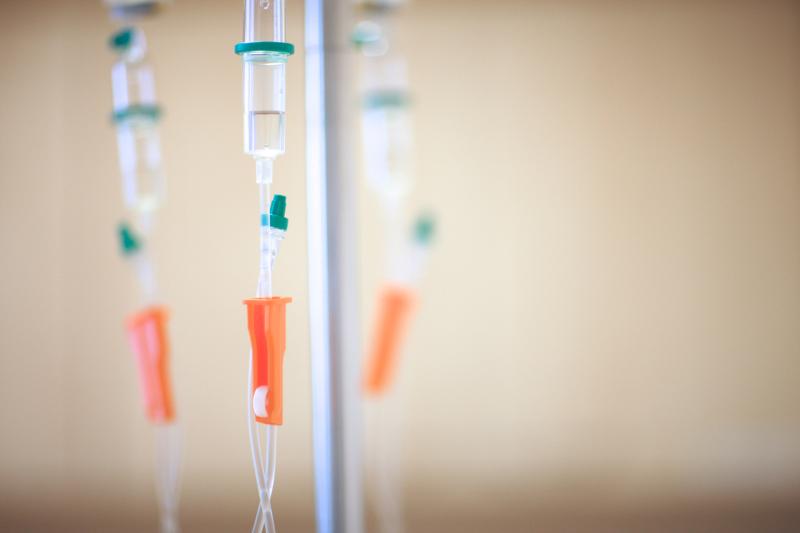
Patients with red blood cell (RBC) transfusion dependence and an unfavourable molecular status suffer from worse relapse-free survival (RFS) after haematopoietic cell transplantation (HCT) for myelofibrosis, a recent study has shown.
Researchers retrospectively assessed 79 patients (median age, 58 years) who had received HCT for myelofibrosis. Those who needed transfusions of more than 2 units over a 4-week period were defined as transfusion dependent. Molecular status, on the other hand, was deemed to be favourable if there was 100 percent donor chimerism in the CD33 fraction in the blood, and if there were no driver mutations.
By day 100, 34 percent (n=27) of the participants were classified as RBC transfusion-dependent, while 27 percent (n=21) were platelet transfusion-dependent. In 42 percent and 61 percent, donor chimerism was 100 percent for CD3+ and CD33+ cells, respectively.
Over a median follow-up of 31 months, 33 percent (n=26) died and 19 percent (n=15) relapsed. Deaths were attributed to relapse or progression of the disease, infections, graft vs host disease, and other transplant issues.
Multivariable Cox proportional hazards analysis dependence on RBC transfusion was a significant predictor of RFS (hazard ratio [HR], 11.43, 95 percent confidence interval [CI], 4.28–30.51; p<0.001), as was having an unfavourable molecular status (HR, 3.18, 95 percent CI, 1.30–7.82; p=0.01). These factors were also strongly correlated with overall survival.
“Our study provides a potential strategy to identify patients at high risk of a poor outcome following HCT at an early time point of day +100,” the researchers said. “Larger studies will be needed to confirm these findings before any management recommendations can be suggested.”